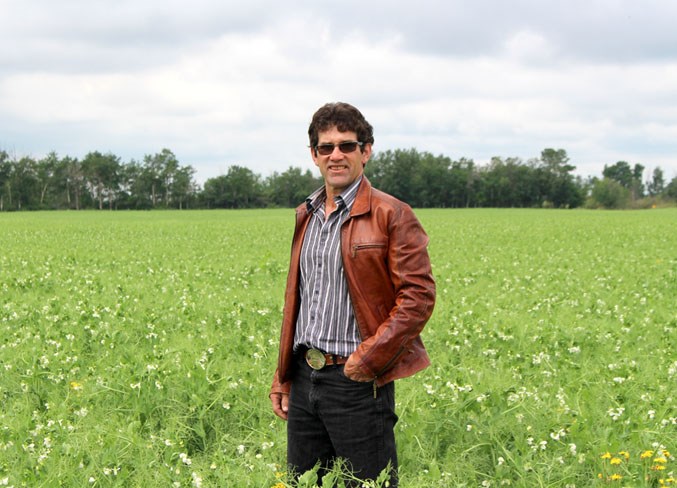Albertans are being encouraged to support local farmers and ranchers in the wake of international market closures.
Local producers are feeling the impact of China’s ban on Canadian beef, pork, and canola, and are hoping it’s short-lived.
Roger Antoniuk, a local beef and grain farmer, noted there’s been a significant drop in prices for canola since the announcement in June.
”It dropped $1 right off the bat; about five per cent right off the bat,” he said, adding he’s seen the price of a canola bushel go from $11 to $9.50.
China recently banned beef and pork products from Canada after customs inspectors found a feed additive called ractopamine in the meat being sent. While ractopamine can be used in Canada, it’s banned in China.
According to Statistics Canada, roughly $63.6-million worth of beef and veal was exported to China as of April 2019, which was about 388 per cent more than the same time last year. For pork, around $310-million was shipped, which was just under a 80 per cent difference from the previous year.
”We can whine and cry all we want, but we need to understand that China has a ban on ractopamine and we need to respect that,” stressed Gordon Graves, Alberta Beef Producers Zone 8 director and Iron River farmer. “They’re the consumer, and the consumer is always right.”
An investigation that followed the discovery found forged veterinary health certificates attached to the original batch.
In a statement, a spokesperson for the Chinese embassy said, “These forged certificates were sent to the Chinese regulatory authorities through Canadian official certificate notification channel, which reflects that the Canadian meat export supervision system exists obvious safety loopholes. In order to protect the safety of Chinese consumers, China has taken urgent preventive measures and requested that the Canadian government suspend the issuance of meat exported to China since June 25.”
As a result of this, the Minister of Agriculture and Forestry Devin Dreeshen called on the province to “buy Albertan.”
”Alberta has a well-earned reputation for making high-quality food, thanks to the hard work of our farmers. We’re proud of Albertan farmers. Alberta farmers are caught up in the crossfire of a bunch of international fights that have nothing to do with them,” Dreeshen said in a press release. “Everyone can do their part and help our farmers by buying Albertan.”
Graves hopes that everyone takes the message to heart.
”If they listen to the news... I’m sure Albertans will support Albertans. Canadians will support all of the Canadian beef industry, not just Alberta.”
He added, “I’m appreciative of the minister taking action, and I’m appreciative of any and all consumers who will step up to the plate and eat maybe an extra burger or a steak a week... just to help the industry through this.”
While Antoniuk believes the minister is trying to help the industry, he doesn’t see the province having the same affect as larger markets can have on their product.
”We’re exporters. We need countries that have a billion people like China. China, the U.S., and Chile are the top three canola buyers for our Canadian canola, and the amount that Alberta can consume is a drop in the bucket,” he exclaimed.
The ban from China was announced amid a diplomatic dispute over the arrest of Chinese national Huawei executive Meng Wanzhou in Vancouver last year.
”If it hadn’t been for Meng Wanzhou, I would think that the meat-side of things would blow over faster,” Graves noted. “China could very well dig their feet on it because of that.”
Both Antoniuk and Graves are cautiously optimistic the ban won’t last much longer.
”I’m hoping it’s short-lived, because the crops coming off here in September or October will carry over from last year so it will put volume on the market,” Antoniuk added.



